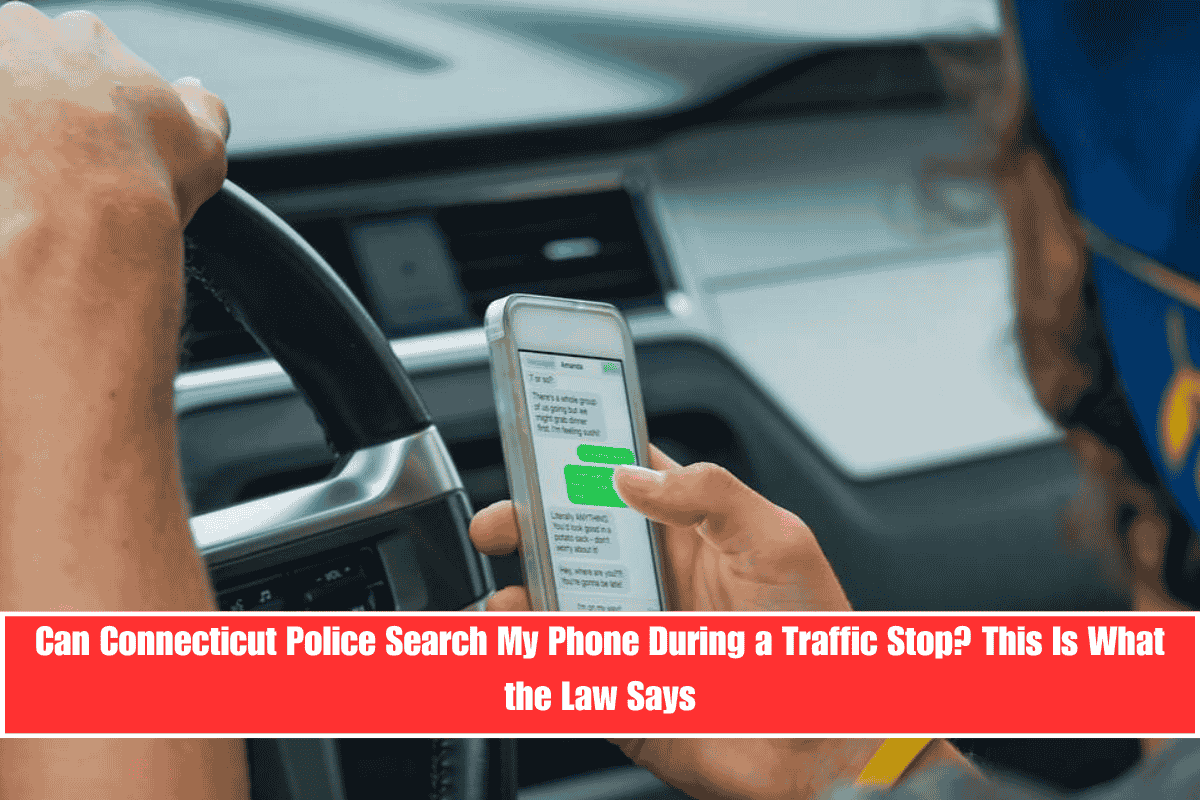Connecticut police cannot search your phone during a traffic stop without your consent or a warrant. The Fourth Amendment to the U.S. Constitution, as well as Connecticut law, protects individuals from unreasonable searches and seizures. This means your phone is considered private property, and police need either:
- Your explicit consent, or
- A valid search warrant based on probable cause
to search its contents.
Traffic Stops and Your Rights
- During a routine traffic stop, police may not search your phone just because you were pulled over.
- If you are asked for consent to search your phone, you have the right to refuse. Refusing consent does not give police authority to search your device.
- If police believe there is evidence of a crime on your phone, they must obtain a warrant from a judge unless an exception to the warrant requirement applies (such as exigent circumstances, which are rare and specific).
Exceptions to the Warrant Requirement
There are limited situations where police could search your phone without a warrant, but these are rare and typically involve:
- Consent: If you voluntarily allow the officer to search your phone.
- Exigent circumstances: If there is an immediate risk that evidence will be destroyed or someone is in danger.
- Search incident to arrest: Even when you are arrested, the U.S. Supreme Court (Riley v. California, 2014) held that police generally cannot search your phone without a warrant.
Recent Connecticut Law and Practice
- Connecticut passed police accountability reforms in 2020, restricting officers from asking for consent to search vehicles during routine traffic stops unless they have probable cause or unsolicited consent. While this law specifically addresses vehicles, the same constitutional protections apply to electronic devices like phones.
- There is no indication from current Connecticut law or proposed bills that police have any broader authority to search phones during traffic stops without consent or a warrant.
What You Should Do
- Remain calm and polite if asked about your phone.
- Clearly state that you do not consent to any search of your phone if you wish to refuse.
- Do not physically resist if police try to take your phone, but make your lack of consent clear.
- If you are arrested, ask for a lawyer immediately and do not answer questions about your phone or its contents.
Table
| Situation | Can Police Search Your Phone? | Notes |
|---|---|---|
| Routine traffic stop | No, unless you consent | Refusal does not justify a search |
| With probable cause and a warrant | Yes | Must be specific and signed by judge |
| Search incident to arrest | No, warrant generally required | Supreme Court precedent |
| Exigent circumstances | Rarely, only if urgent threat | Very limited, must be justified |
Connecticut police cannot search your phone during a traffic stop without your consent or a search warrant. You have the right to refuse consent, and any search without a warrant or valid exception is likely unconstitutional.
Sources
[1] https://portal.ct.gov/-/media/ocpd/bills/bills-2025/2025-7204-stopssearches-publicsafety-jdbdds03112025.pdf?rev=9f3eb38e01414133b9d19073b6925325&hash=00C5C9BA52E99900BF2687B881EED385
[2] https://www.cga.ct.gov/2025/JFR/H/PDF/2025HB-07204-R00PS-JFR.PDF
[3] https://www.acluct.org/en/know-your-rights/know-your-rights-stopped-police-connecticut
[4] https://ctmirror.org/2024/05/07/ct-traffic-stop-secondary-violation/
[5] https://www.carlsondumeer.com/firm-















